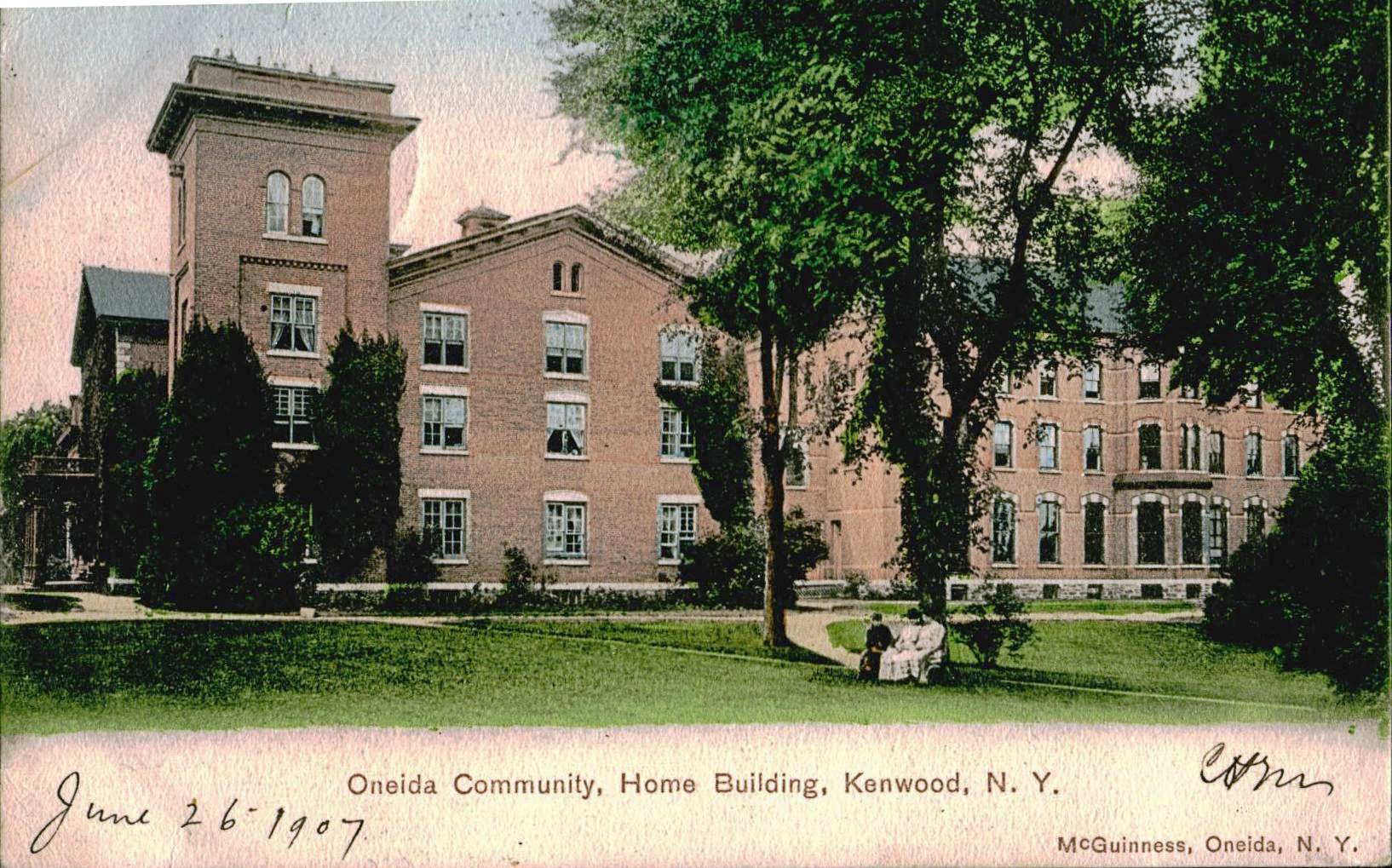From 1848 to 1881, the Oneida Community resided just outside Oneida, NY. Founded by extremely religious preacher John Humphrey Noyes, the community strived to lead its life parallel to the ideals of Perfectionism, in which its member “persevered in a course of self-improvement, overcoming many obstacles.”1 Among some of Noyes’s greater ideals, he lived to help the anti-slavery cause. In The Hand-book of Oneida Community, Noyes states, “My heart was greatly engaged in [anti-slavery] work. At Andover I had become interested in the Anti-Slavery cause, and soon after I went to New Haven I took part, with a few pioneer abolitionists, in the formation of one of the earliest Anti-Slavery Societies in the country.”2 Certainly J. H. Noyes invigorated the members of his community to think in the same way.
Yet, in the copy of the Oneida Circular Newspaper printed on April 15, 1872, author H W B wrote a review when a group of nine African-American singer from Fisk University, called Fisk Jubilee Singers, came to perform at Oneida. H W B and quoted author Theo F. Seward, in this article, use words, such as pathetic, unfortunates, wholly untutored minds, and phrases like “As to the words which accompany their songs, they are even more broken and irregular than is the music,” and “The reason for [their success] cannot apparently be traced to the superior talent of the singer themselves” as the author only believes that three of four of them have nice voices, to describe the Fisk Jubilee Singers.3
How, then, can one say that the Oneida community was really built of J. H. Noyes’s fascination of the anti-slavery movement? It seems that the community members have a problem with allowing the African-American singers to be on a level ground with whites. As mentioned before, the author stated that the students had “wholly untutored minds,” although they all studying at Fisk University. I believe that shows that the Oneida Community had fallen away from its markers original ideals.
1 Oneida Community, Hand-book of the Oneida Community: With a Sketch of Its Founder, and an Outline of Its Constitution and Doctrines. (Wallingford, Conn. : Office of the Circular, Wallingford Community, 1867) 8 .
2 Ibid., 7.
3 H, W. B. “The Jubilee Singers.” Oneida Circular (1871-1876) 9, no. 16 (Apr 15, 1872): 126. http://search.proquest.com/docview/137675405?accountid=351.


L, this is a really interesting post. I appreciated your discussion of the primary source you found; the only thing missing is the source itself! (I know you wrote this in Word, but for the next post I’d love to see a screenshot or two embedded here, just to make the research you did more immediate for the reader.)
You’re right to point out the seeming contradiction in the racism of anti-slavery movements and individual abolitionists. Lincoln himself is known to have held many of the common racist views of his lifetime, showing that emancipation from slavery and racial integration of society could be separated out; the first was considered possible, the latter undesirable.
So it’s entirely likely that HWB and Seward approached the Fisk Jubilee Singers with prejudice. But is it also possible that as a newly formed group, the Singers weren’t yet as polished as they were later become? Is it possible that HWB just had higher standards than other critics? The only way to know this is to see if others were using similar language or making similar criticism. The “wholly untutored minds” comment certainly makes the racism hypothesis more plausible, but it’d be interesting to put more reviews of the Singers side by side to see what kinds of common language crop up.
Keep up the good work!